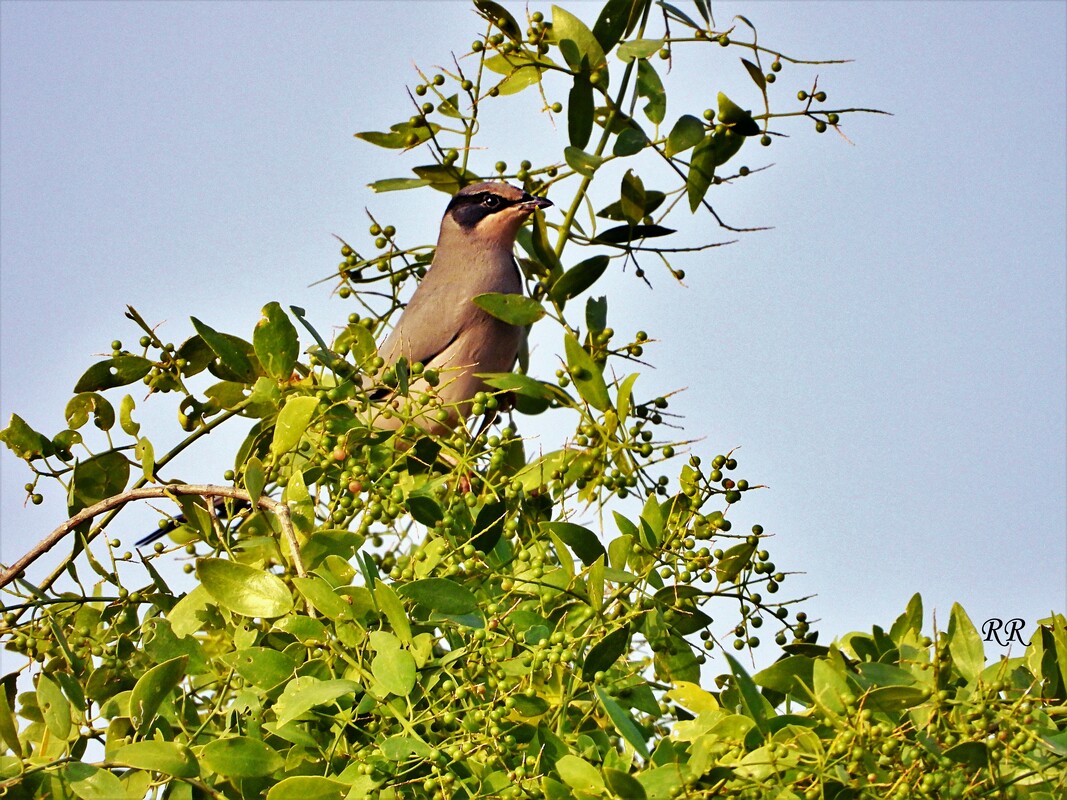 It was our second day in the Great Rann of Kutch. The first day was quite extraordinary. We saw an amazing array of raptors…about them a little later! We were keen to have a glimpse of the elusive Hypocolius. It has been a difficult bird to find because its entire breeding terrain is in the politically disturbed countries of Iraq and Iran. Birders used to look for it in the Arabian Peninsula and still do, but in the early 1990s a wintering population was found in the Kutch district of Gujarat by Shri Jugal Tiwari. How often can you have the company of the person who was the first to report its presence in India? We were blessed indeed to have his wonderful company and all of us set out early in the morning in search of the elusive bird. Shri Jugal Tiwari is an institution. Birding has been his passion and vocation for a long time and he has enriched our understanding of their habitats through several research publications. Notwithstanding his impressive stature, he is such a genial, friendly person with whom one connects immediately. We passed through a thorn forest and scrub land and Shri Jugal Tiwari pointed out to a rather nondescript tree and mentioned that it is Slavadora Persica, often referred to as Miswak or tooth brush tree. Its branches have been used for centuries to clean the teeth. We have been using Meswak toothpaste for quite a while and saw the origins of it for the first time! It is mentioned that Prophet Mohammed recommended the use of Miswak for oral hygiene. Hypocollius seems to prefer this tree and we waited patiently, scanning the branches for its presence. Shri Jugal Tiwari whispered that it was hiding in the tree in front of us and we waited with bated breath for its appearance. We could see it fluttering through the leaves and finally after sometime, it came up onto the top branch of the tree to offer us a good glimpse. It was a slim bird with a long tail, slight crest and thick, short bill. Its shape and soft, satiny plumage was that of a waxwing. We could have easily mistaken it for a bulbul from a distance. Over the next few minutes we saw several of them flitting from one tree to another. Why is it so special to have a glimpse of Hypocolius? There are very few birds that form a single species and single genus and these are often referred to as “monospecific families”, also known as “monotypic families”…they are one of kind! A few years ago I went in search of one such species..the Ibis Bill in Nameri. Little did I know that spotting this bird would involve floating down the Jia Bhoroli river in a makeshift coracle. I gingerly stepped into to it while it was already swaying alarmingly with the tide. As we were going down the river, the boatman excitedly pointed out to the presence of the Ibis Bill which was sauntering across the rocks on the banks. It was a memorable experience to have a glimpse of it in the fading light of the evening. But soon it began to rain and we were steered towards the rocky banks. The boatman just turned the coracle upside down and it offered us protection as an umbrella against the onslaught of rain. That we continued to sail through the river for the next few hours despite the downpour is another story! There are birds that one has heard of or seen in books that captures the imagination, but never had a chance to see...and then one day, there it is in front of you, as if some mythical creature has stepped out of a storybook and come to life. There's no thrill quite like it. It is these moments that makes birding an unforgettable experience!
8 Comments
|
Dr Raguram
Someone who keeps exploring beyond the boundaries of everyday life to savor and share those unforgettable moments.... Archives
May 2024
Categories |
 RSS Feed
RSS Feed